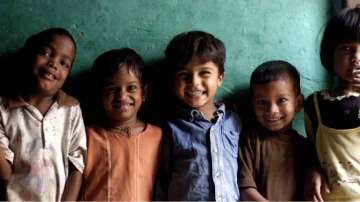An estimated 19 million children, more than ever before, were living in displacement within their own countries due to conflict and violence in 2019 -- some of them for years, according to a new report of the UN Children's Fund (UNICEF).
At the end of 2019, an estimated 46 million people were internally displaced by conflict and violence. More than four in 10, or 19 million, were children, says the report "Lost at Home," which was released on Tuesday, reported Xinhua news agency.
Millions more were displaced by disasters. Forced out of their homes and communities, these children are among the most vulnerable in the world. The ongoing COVID-19 pandemic stands to bring even more harm and uncertainty to their lives, according to the report.
"Millions of displaced children around the world are already going without proper care and protection," said UNICEF Executive Director Henrietta Fore. "When new crises emerge, like the COVID-19 pandemic, these children are especially vulnerable. It is essential that governments and humanitarian partners work together to keep them safe, healthy, learning and protected."
Internally displaced children lack access to basic services and are at risk of exposure to violence, exploitation, abuse and trafficking, the report says. They are also at risk of child labour, child marriage and family separation which all pose direct threats to their health and safety.
The COVID-19 pandemic is making a critical situation for displaced children and families even worse. They often live in overcrowded camps or informal settlements, where access to basic hygiene and health services is limited, and where physical distancing is not possible. These conditions are highly conducive to the spread of diseases like COVID-19, says the report.
There were 12 million new displacements of children in 2019, 3.8 million of them were caused by conflict and violence, and 8.2 million by disasters linked mostly to weather-related events like flooding and storms, according to the report.
UNICEF calls for strategic investments and a united effort from governments, civil society, private sector, humanitarian actors and children themselves to address the child-specific drivers of displacement, especially all forms of violence, exploitation and abuse.
UNICEF also calls on governments to take concrete action and investment that will help provide protection and equitable access to services for all internally displaced children and their families.
Latest World News
